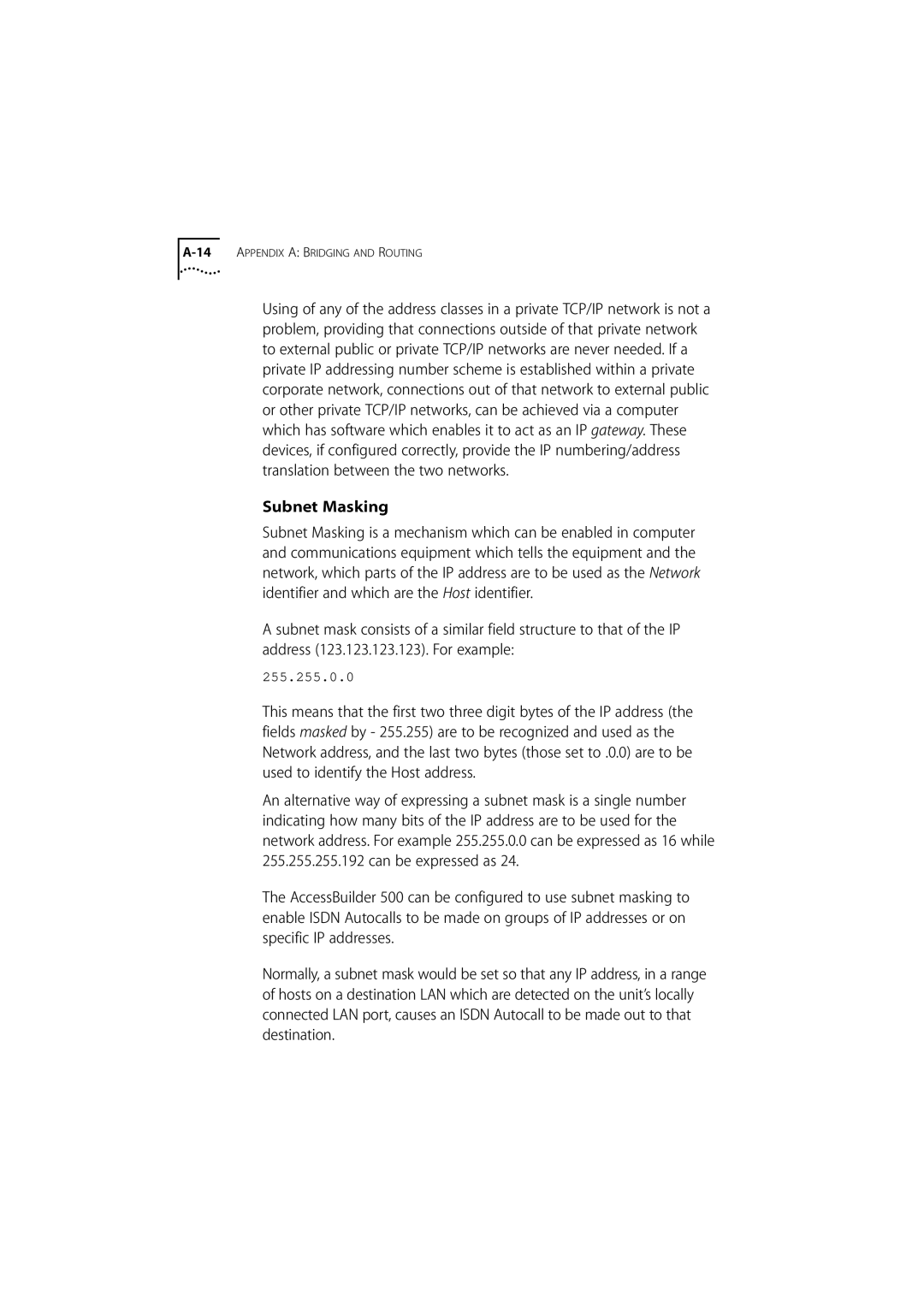Using of any of the address classes in a private TCP/IP network is not a problem, providing that connections outside of that private network to external public or private TCP/IP networks are never needed. If a private IP addressing number scheme is established within a private corporate network, connections out of that network to external public or other private TCP/IP networks, can be achieved via a computer which has software which enables it to act as an IP gateway. These devices, if configured correctly, provide the IP numbering/address translation between the two networks.
Subnet Masking
Subnet Masking is a mechanism which can be enabled in computer and communications equipment which tells the equipment and the network, which parts of the IP address are to be used as the Network identifier and which are the Host identifier.
A subnet mask consists of a similar field structure to that of the IP address (123.123.123.123). For example:
255.255.0.0
This means that the first two three digit bytes of the IP address (the fields masked by - 255.255) are to be recognized and used as the Network address, and the last two bytes (those set to .0.0) are to be used to identify the Host address.
An alternative way of expressing a subnet mask is a single number indicating how many bits of the IP address are to be used for the network address. For example 255.255.0.0 can be expressed as 16 while 255.255.255.192 can be expressed as 24.
The AccessBuilder 500 can be configured to use subnet masking to enable ISDN Autocalls to be made on groups of IP addresses or on specific IP addresses.
Normally, a subnet mask would be set so that any IP address, in a range of hosts on a destination LAN which are detected on the unit’s locally connected LAN port, causes an ISDN Autocall to be made out to that destination.
